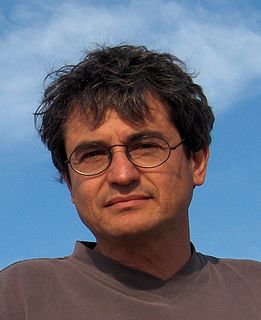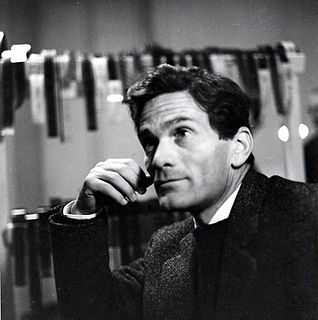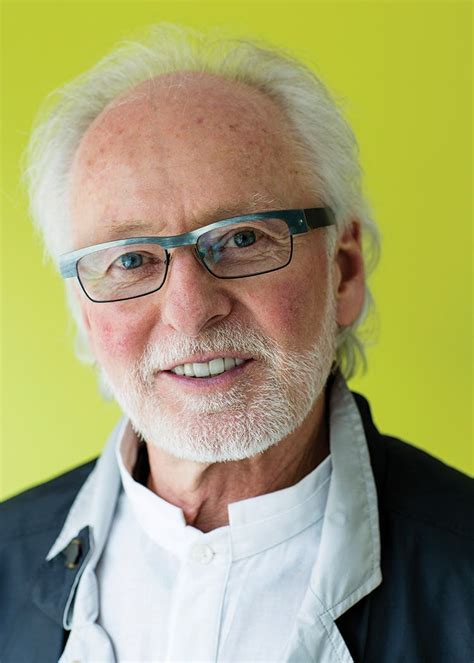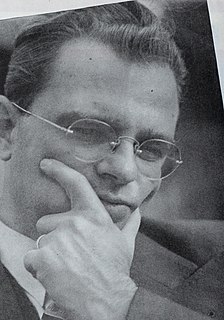A Quote by Mark Manson
Death is important for a couple reasons. The first is that death creates scarcity in our life, which therefore gives our decisions meaning and value. From a practical point of view, it therefore makes sense that we keep our own deaths in mind when deciding how to use our time.
Related Quotes
The very foundation of science is to keep the door open to doubt. Precisely because we keep questioning everything, especially our own premises, we are always ready to improve our knowledge. Therefore a good scientist is never ‘certain’. Lack of certainty is precisely what makes conclusions more reliable than the conclusions of those who are certain: because the good scientist will be ready to shift to a different point of view if better elements of evidence, or novel arguments emerge. Therefore certainty is not only something of no use, but is in fact damaging, if we value reliability.
From a Buddhist point of view, the actual experience of death is very important. Although how or where we will be reborn is generally dependent on karmic forces, our state of mind at the time of death can influence the quality of our next rebirth. So at the moment of death, in spite of the great variety of karmas we have accumulated, if we make a special effort to generate a virtuous state of mind, we may strengthen and activate a virtuous karma, and so bring about a happy rebirth.
Take death for example. A great deal of our effort goes into avoiding it. We make extraordinary efforts to delay it, and often consider its intrusion a tragic event. Yet we'd find it hard to live without it. Death gives meaning to our lives. It gives importance and value to time. Time would become meaningless if there were too much of it.
Death does determine life. Once life is finished it acquires a sense; up to that point it has not got a sense; its sense is suspended and therefore ambiguous. However, to be sincere I must add that for me death is important only if it is not justified and rationalized by reason. For me death is the maximum of epicness and death.
Teach him to live rather than to avoid death: life is not breath, but action, the use of our senses, our mind, our faculties, every part of ourselves which makes us conscious of our being. Life consists less in length of days than in the keen sense of living. A man maybe buried at a hundred and may never have lived at all. He would have fared better had he died young.
My plea therefore is this: Let us get our instruments tightly strung and our melodies sweetly sung. Let us not die with our music still in us. Let us rather use this precious mortal probation to move confidently and gloriously upward toward the eternal life which God our Father gives to those who keep his commandments.
Death is a part of all our lives. Whether we like it or not, it is bound to happen. Instead of avoiding thinking about it, it is better to understand its meaning. We all have the same body, the same human flesh, and therefore we will all die. There is a big difference, of course, between natural death and accidental death, but basically death will come sooner or later. If from the beginning your attitude is 'Yes, death is part of our lives,' then it may be easier to face.
Ours is the one ever-present voice in our lives. Therefore, it is crucial that our self-talk instill confidence within us and is supportive, not submerging, and that our attitudes toward ourselves help keep our spirits afloat through acceptance and trust. We are our own most important and influential buoy.
They have no consciousness therefore. Therefore what? Therefore we are free to use them for our own ends? Therefore we are free to kill them? Why? What is so special about the form of consciousness we recognize that makes killing a bearer of it a crime while killing an animal goes unpunished?...all this discussion of consciousness and whether animals have it is just a smokescreen. At bottom we protect our own kind. Thumbs up to human babies, thumbs down to veal calves.
Nothing that is worth doing can be achieved in our lifetime; therefore we must be saved by hope. Nothing which is true or beautiful or good makes complete sense in any immediate context of history; therefore we must be saved by faith. Nothing we do, however virtuous, can be accomplished alone; therefore we must be saved by love. No virtuous act is quite as virtuous from the standpoint of our friend or foe as it is from our standpoint. Therefore we must be saved by the final form of love which is forgiveness.

































